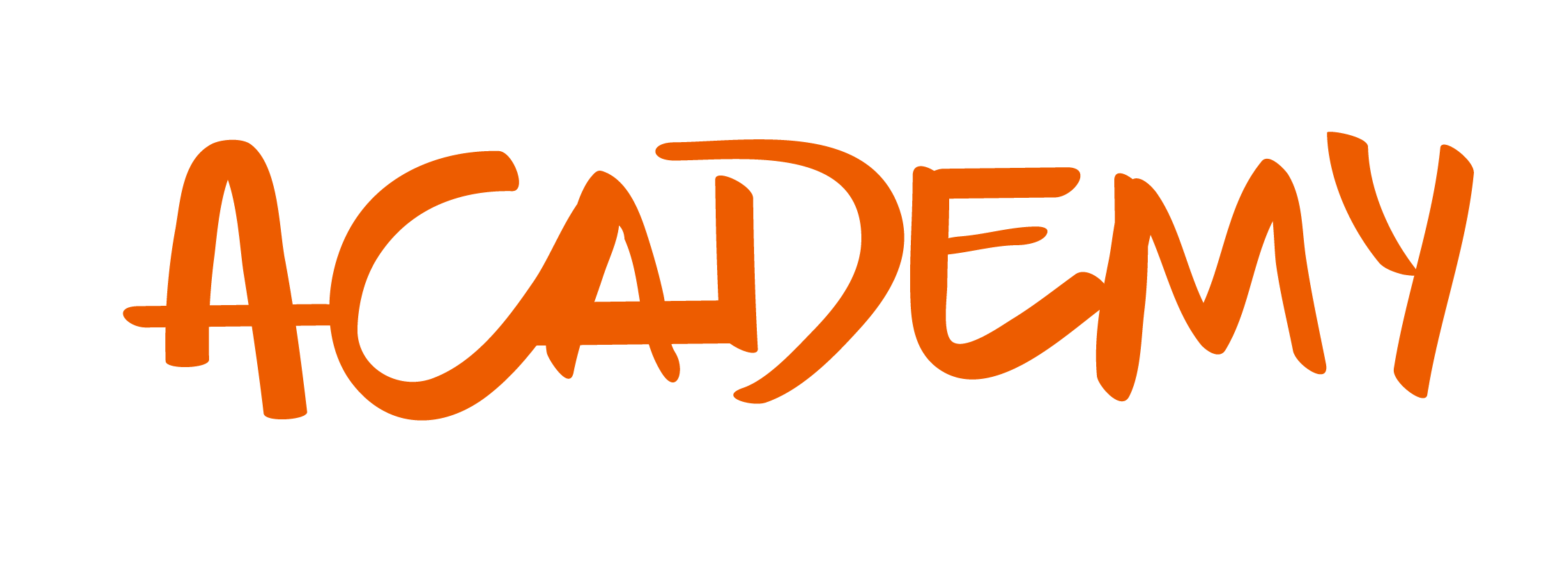Any business that spends their working hours away from the office or working on a computer can benefit from time tracking. Here we’ll discuss why is it more relevant than you think.
What is time tracking?
Let’s start with the basics. Time tracking is tracking one’s time in hours so they can get paid at the end of their payment cycle.
As a manager or boss, you’ll probably say the old vintage phrase “ Don’t forget to log your hours this week. Trying to get everyone to log their time can sometimes feel like herding rogue sheep. Additionally, doing manual timesheets can bring up issues of dishonesty, excessive overtime, and even time theft. Yikes.
Audience targeting, lead generation in project management, and other tasks of this kind take a whole lot of effort and creative energy, and productive effort. Performing them well means your agency can become more competitive in this ruthless industry. It means you can attract larger clients and boost profitability as your reputation grows stronger and you start to instill greater trust.
Manually tracking hours is a highly ineffective use of your team member’s time and can result in inaccurate timekeeping. To avoid waiting time, say goodbye to lengthy
For this to happen, you surely must be an expert in your field and hire the best talent. But besides, you have to know the basics of effective time management and take full control over the business resources to drive efficiency and stimulate growth.
That’s where time tracking tools come in handy. It helps you see how your team uses its time, analyzes productivity, and makes informed process improvement decisions. Besides, it automates multiple routine activities, allowing you to focus on high-value marketing tasks and stay tuned in to what’s really important. Billable hours are easily displayed so there’s no place for confusion.
What makes a great time-tracking app?
With the size of the time tracking market the customer needs are very diverse. Therefore you now have thousands of apps that try to satisfy those needs and you may find it hard to choose the one for you.
A good time tracking app helps maintain productivity and make better business decisions. When you understand how people are spending their time, you can build better processes and help teams further develop their skills.
What’s the best part of this? You know exactly how much to bill clients at the end of the month. Whether you’re an agency or a freelance, you want to know you’re being paid for all your work. Without a way to stay organized, you could easily miss your time entries which over time results in less income.
Key features to look for in time tracking software include:
Intuitive features: Nobody wants a steep learning curve. In these mobile apps, look for drag-and-drop functions and color-coded menus to keep it simple.
Integrations: Look for them with the project management tool of your choice.
Invoice creation: If you bill by the hour, see if your time tracking app can generate an invoice with the hours.
Automated time tracking: It’s easy to forget to stop and start time tracking apps. Automatic trackers monitor your work in the background so you don’t need to remember to do anything. Some apps work offline too which makes teamwork much easier.
Who tracks time and why?
Time tracking is the modern way of working due to being part of the business world, whether you like it or not, most businesses rely on them especially when their employees spend a lot of time working on a computer or away from the office. Time tracking is useful and beneficial for all businesses that:
- Work with clients
- Bill by the hour.
- Have a remote or hybrid work arrangement
- Offer flexible time
- Want to improve productivity and profitability
The tracking data optimizes the performance of individual employees as well as the workflows of your marketing team as a whole. Because it keeps tabs on how your employees are spending their time, you can identify inefficiencies, distractions, and future bottlenecks.
The empirical data from time tracking will let you identify areas that need to be improved. In that way, you can improve the productivity and performance of your team’s time efficiency.
Setting specific tasks and goals for your marketing team can sometimes be a problem when success or failure is defined by the marketing campaign.
However, the success or failure of your campaign may be due to factors beyond the control of your team. In such cases, it would not be fair to use goals that hinge on the campaign results.
Time trackers can give you another way to set goals – one that is both fair and yet measurable. The tracking data will let you see the time spent working on a campaign, which can then be linked to the work that was done.
If you set your goals based on working hours, work completed, and results it will be not only more comprehensive – but also fair.
Moving on then, as you go over the data obtained from time tracking, you will be able to elaborate accurate time estimates of how much time a task is demanding. And when you do, the truth comes to the surface; you may notice that this gives information in real-time and realize some members of your team actually spend less time on certain tasks.
If an employee completes tasks quickly and with satisfactory results, it may indicate that they are particularly skilled at that task. In this case, assigning similar tasks to them may improve the efficiency of your team.
Similarly, if an employee completes certain tasks more slowly, it may be that they’re unfamiliar with that task or require better training. To address that you can either choose to assign them tasks that fit their skill set better, or sign them up for the training they need.
Overall, project time tracking will let you distribute tasks far more effectively and increase the efficiency of your marketing team.
Another reason why time tracking is important to an agency, we can mention burnout. Sometimes the work of your marketing agency may seem like it is never really done. There are always new campaigns that need to be launched as well as existing campaigns that need to be optimized.
Using Time tracking will let you know exactly how many hours your employees are working. Its data will show if anyone is overworking, and at risk of burning out.
When you notice that any member of your marketing team is working longer hours than they should, you can look at ways to adjust their workload or talk to them about it. A Time tracking solution not only will prevent burnout, but it will show your employees that you care about them and help them get motivated.
Carrying on, we cannot move forward without mentioning costs which are essential to every marketing campaign. After all, you need to know the amount you spend on marketing is justified and focus on campaigns that have a good return on investment (ROI) based on the marketing costs.
People tend to forget that time is money too – and the amount of hours your marketing team works on a campaign should be included when you calculate the overall cost of any campaign. Normally you’d have to simply estimate the working hours spent on a campaign, but with project management software with time tracking you can be far more specific with work time.
The data from time tracking will let you know the overall working hours spent on a marketing campaign, you’ll also improve the accuracy of your ROI calculations.
By improving the accuracy of your marketing cost calculations, you’ll also improve the accuracy of your ROI calculations.
Last but not least, with more accurate time estimates you can plan your marketing campaign and distribute tasks more effectively – helping maximize the use of your marketing team’s time. The more data you gather, the more accurate your estimates will be.
Benefits of Time tracking for your team
Working in a large team comes with a set of specific challenges:
- You’ll start to wonder if anyone is doing their share of work.
- You can’t anticipate how long it will take your team member to complete their tasks.
- You can’t guarantee your team is working on the assignment at all.
Things become even trickier in remote hybrid teams, both for managers and team members.
You and your team members might be unaware of how much time everyone spends on certain tasks if everyone is doing their share of the work. In such a setting, it becomes much more difficult to synchronize all work and complete projects within set deadlines and budgets.
Thanks to time tracking software, both managers and team members can gain insight into what every team member is doing and when.
This will allow the entire team to work more efficiently and come up with better schedules.
It will also help teams achieve better results on future projects.
To sum up, then, time tracking allows teams to:
- Maintain high motivation and productivity levels
- Resolve potential issues and conflicts
- Organize and prioritize better, and
- Reach personal and shared goals more quickly.
Time tracking benefits for small businesses
As we’ve said before, time tracking can track down the performance time of the employees in an organization. It is pretty simple to define, but time-tracking software can run miles more. The recent surge in time tracking and productivity software is making things easier for organization owners to track down the activities of the employees. A business in its embryonic period might have a lot of enthusiastic workers.
The problem is that enthusiasm doesn’t always bring productivity. The business owner of a startup may see that people are working hard, but it’s tough to pin down the efficacy of the work.
A small business can be benefited from time tracking to the fullest. Here are some benefits you can extract from a proficient time tracking software as a small business or startup owner.
1. No more micromanagement
Micromanagement is a critical issue found in many small businesses and companies where the managers are too meticulous based on this available information. They try to track down employees’ everything, and sometimes it feels like they are spying on their employees.
So, in a company where micromanagement is prevalent, employees working there don´t have considerable flexibility. Time tracking software helps managers to track employees’ performance remotely, which can be scrutinized later.
If you’re afraid that your managers might micromanage the entire working ambiance, you should be using time tracking software
2. Task Management Flexibility
Through time tracking software, it’s now tremendously simple to allocate tasks and time to the employees. Task management has always been a strenuous job for managers, but tracking software often provides you with this feature to divide the task most sensibly. Division of functions makes the work more accessible and more flexible.
3. A new discipline in the organization
Once the startup transforms into a small business, it’s necessary to have some differentiating criteria to explore and flourish. Work ethic and culture need to be created and enhanced with a new discipline and office codes flare.
While ensuring that your employee’s performance is tracked, time tracking software makes your employees transparent and accountable for their work.
It makes sure that your employees are more attentive and disciplined in the workplace. Practicing this norm could transform your business and help it place itself as a disciplined line of business.
4. Motivation to keep up the good work
The activity and non-activity shown by the time tracking software you’re using can encourage your employees to keep up their efficiency. Numbers and stats are fascinating stuff. You love to see them rising unless they are your electricity bill or household expenses.
While working employees will keep their eyes on the time tracking software installed on their devices too. The Time recorder will remind them how long they have been working. It will show them the productivity percentage. These stats can incentivize them to work harder and longer.
5. Set a benchmark for upcoming projects
Being a small business owner, you don´t know how much time it takes to do every project that will constitute your workplace in the future days. The most horrendous thing happens when you estimate out of the blue, and your estimation becomes a blunder.
Using time tracking software for the projects you are carrying out is bliss! Now you know the estimated time that helps you to presume the next project’s working hours. It will help you create a benchmark for the business that won’t any longer seem minor to you.
6. Retain the best performers
At the very beginning of your business’s journey, you were unsure about the performance of the employees. Time tracking has solved that issue.
You now have a clear spectrum of people’s working hours, their visited websites, what they were doing at a particular period, or the ratio between their productive and non-productive working hours.
You can quickly determine who is working hard for you and those dodging you out of business. It helps you retain the actual performers, and now you have a strong rationale behind that.
Time tracking benefits for managers
Managers are the most important link in any business organization because they:
- Supervise project costs, deadline estimates, and all employees in their teams.
- Carry information between team members and departments.
- Coordinate all team members and oversee all project aspects.
- Establish good relationships with clients
- Carry information between team members and departments.
If managers don’t know how much time each project requires, their job becomes much harder. This is where time tracking does its magic.
Time tracking data provides different benefits for different kinds of managers:
Project managers: Time tracking makes their paperwork and supervising easier.
Corporate managers: Time tracking helps them oversee project costs, deadlines, and employees.
Account managers: Time tracking helps them improve the company’s relationship with its clients.
The project manager can use the data to easily handle vital paperwork and supervise team members and their work. It makes it easier to process documentation, particularly, everyone’s payroll.
If your team tracks time, you can make sure you don’t overpay team members for the time they’ve spent working on a project. You can make sure you don´t overpay or underpay team members for the time they’ve spent working on a project.
Access everyone’s time results and activity reports whenever you want. This way, you’ll know how your employees are spending their time at work. Analyzing this data will allow you to identify any time sinks and find the best way to deal with them.
Time tracking benefits for creatives
Whether you’re a genius innovator or just a hard worker with a keen eye for design, you can’t achieve the best professional results without proper work management. If you’re a freelancer or a member of a design team, you need to plan your tasks, monitor performance, and analyze its outcomes in either case. Otherwise, you’re bound to waste valuable resources, struggle with deadlines and lose money.
An intelligent time tracker can give you extra control over the design process. It lets you see how many hours you spend on different tasks and how many costs they incur. Besides, it allows you to watch your deadlines closely and simplifies client billing. As a result, you stress out less and don’t drain your creative energy due to tedious calculations and other routine activities.
Time tracking benefits for freelancers
Freelancing is a rewarding endeavor: you’re free to choose what to work on and can stay as flexible during the day as you wish. However, many freelancers find it hard to be consistently productive. They may end up with too many tasks to handle or unwillingly exceed their budgets.
Luckily for freelance designers, time tracking lets them address these issues and manage the entire project process with ease. And here are the main benefits of using an intelligent time tracking solution as a freelance designer:
-
Better work planning
Without a well-developed project plan, you can’t understand your priorities and end up wasting a lot of time just figuring out which task to jump on next. But a time tracking tool can help you avoid that and keep your projects well organized.
To begin with time tracking, your first need to create a list of tasks in the software of choice. Then, it will let you edit, categorize and sort them in various ways.
Once the work scope is thought through, you get a comprehensive view of everything to do. Then, you may sort your tasks by their progress statuses or deadlines to clearly see which job to focus on next.
Such a simple approach to work organization allows you to avoid chaos and ensures that everything is completed in a due manner and without delays, which is particularly important when you manage several projects at once.
-
Improved time efficiency
Nothing is so harmful to your success as a freelance designer as inefficient use of time. Of course, it doesn´t mean you have to always work super fast. You just need to know if you spend much more resources on some tasks than it’s necessary, identify your time wasters, and aim to get rid of those.
By keeping an accurate record of your working hours, you will develop a clear idea of when you were too slow or, on the contrary, finished a task at a very high speed without compromising your work quality. Even a brief analysis of your time
-
Deeper insight into project costs and revenues
If you want to drive profitability, you have to see after the financial side of your freelancing job, analyze project expenses, and monitor revenues. A smart time tracking tool can easily enable you to do that, just make certain it includes functionality for cost and billable time tracking.
-
Streamlined billing and invoicing
Billing and invoicing are two of the most challenging things to do as a freelancer designer. You can’t just delegate these tasks to an experienced accountant ( unless you can afford that, of course.) So, you have to figure out all intricacies yourself.
Nevertheless, time-tracking software makes billing and invoicing incredibly easy – you just need to search for a solution with relevant automation features.
-
Smooth price communication
Tired of constantly justifying your freelance work price? We feel you! Never-ending back-and-forth communication on project fees is exhausting, especially when clients consider your services too expensive and don’t understand how your billing process works.
A time tracker with robust reporting functionality can make your life much easier. It allows you to create a breakdown of work by hours and tasks – show it to your clients to explain why you charge as much as you do.
The more detailed your time tracking and billing report is the higher trust and transparency in price communication with clients you can achieve. eventually, this saves a lot of time for every party involved and helps you improve the overall client experience.
Time tracking benefits for clients
Clients need trust signals from you. They will rely on your time tracking data to:
-
Have accurate estimates and quotes
When looking for a professional to take on their project, clients have to take into account their planned budget for the project and the ideal time when they’ll want everything done.
By turning to a company or individual professional that tracks time during work hours, they’ll know that the estimates for the deadlines and quotes are as accurate as possible.
Also, the chances for a sudden rise in expected fees will be minimal. They’ll know the company or individual professionals are aware of the time needed to finish such a project, so they’ll have more trust in their deadline estimates.
-
Time tracking helps provide accurate billing
Teams that track the time they spend on a project can accurately calculate their total hours worked.
This means they can also charge their clients accurately because they’ll have all the data necessary to bill clients according to their hourly rates.
Clients will never have to worry about overpaying or underpaying the people they hired for the job. They’ll have access to reports that show all the completed assignments and expenses.
-
Time tracking shows the project is progressing
Sometimes clients can feel uneasy if they don’t know how the project is going. They will probably ask you the following:
- Is everything going as accorded?
- Will you finish on time?
- Are they any potential issues that may push the deadline?
As part of their planning, clients can ask those they hire to send them time-tracking reports on their progress. The reports will provide answers to all their questions.
These reports can be daily, weekly, or monthly, depending on the size of the project and the client’s interest in its progress.
By having insight into these reports, the clients can learn:
- How much time does it take to complete each assignment of the project
- Whether certain segments of the project are taking longer than estimated
- Whether enough time is allocated to all important segments of the projects
- Whether they can expect unforeseen expenses before the project is completed.
Creating a trustworthy, long-lasting relationship with a client can be much easier with the transparency provided by time-tracking software.
When clients hire people who track their time, they know they have found professionals who value their own time, and who will, by extension, value the client’s time.
How can time tracking save money?
Expecting employees to log the time they spend sending or replying to emails is highly impractical and time-consuming. Besides, manual systems are notoriously error-prone.
Moreover, depending on an honor system for time tracking can lead to time theft and buddy punching. All it takes is a few rotten apples to build an atmosphere of distrust and stress in a workplace.
It all starts by gaining complete visibility into your employee’s efforts. Tracking their work automatically helps businesses gauge the financial value of the work done.
For employees, such a system is:
- More convenient, accurate, and minimally disruptive
- Effective in understanding how they work
- Useful in tracking activities that seem trivial but can eat up a sizeable chunk of their workday (like emails)
That’s where software facilitating automated employee time tracking (in real-time) and equipped with robust anti-fraud mechanisms can help.
-
Eliminate manual errors with automated time tracking
Using automated employee time tracking software, employees can set up reminders or notifications to punch in at the right time. Once logged in, the software would track time spent on various activities automatically.
Good software allows employees to log in using the device of their choice — desktop, laptop, tablet, mobile, or an API. The software would also work offline (without an internet connection) so that time tracking is uninterrupted.
-
Avoid time thefts and buddy punching with a real-time anti-fraud mechanism
The best employee time tracking tools are equipped with an anti-fraud mechanism to prevent time thefts or buddy punching by verifying the following in real-time:
- The device type, date, and time of logging in
- Location tracking via GPS
- WiFi configuration tracking
- IP validation
Plus, a great employee time tracking solution comes with facial recognition and voice commands. So, employees can use biometrics to log in and track their activities.
The voice commands facilitate touchless clock-in at companies that require employees to work on-site.
-
Get better at planning projects and allocating resources
Without knowing the actual time taken per task, it’s impossible to come up with a realistic estimate of the resources needed for a project. An employee time tracking software can track time spent on productive and unproductive (work that doesn’t add any value to the project) tasks to:
- Improve productivity and work habits
- Flag overtime (as these employees could be close to burnout)
- Estimate the resources required more accurately to avoid missing deadlines or stretching teams too thin
-
Improve employee motivation and productivity
Whenever employees reach their time limits, an employee time tracking software notifies the right supervisors immediately to avoid extra work hours.
Time tracking also lets employers know which employees need rewards and which ones need coaching by comparing the time taken to perform a certain set of tasks. For instance, if one employee takes four hours to finish a task that another took just an hour to wrap up, it’s a sign that the first employee might be facing some challenges.
Merely tracking employee time without offering support might make them feel disengaged and disconnected.
How to start tracking time?
What are the crucial steps you need to take to start tracking time?
- Step 1: The key is to write down what you spend your time on during the week. Remember to include all your tasks and activities.
- Step 2: Once you complete each week, you can go over the data for the week, analyze it, and make adjustments accordingly.
The cool thing about time tracking software is that it can actually bring positive changes to your company. Sadly, this fact is not so obvious to most employees. That is why a manager should prepare them for this change. Support your team: share your goals, explain the benefits, simplify user experience and collect feedback. This will help to avoid much of the stress.
Types of time tracking software
Depending on your professional and personal needs, maybe you use a timesheet software for keeping track of your work hours and a simple time clock tool for non-work tasks. Or, you find an automatic time tracker more suitable for all activities. Either way, can you tell the difference between diverse types of time-tracking software? And, what’s the purpose of each tool? This article will bring you answers to these questions, which will help you choose the best time tracking software for you.
Going in depth we can mention:
-
Timekeeping software
Timekeeping software helps you keep a record of your work hours. You can choose between two methods of using timekeeping software:
- you can manually enter your hours.
- enter your work hours by filling out a timesheet (timesheet software)
- you can use a timer – a method known as time recording.
In a way, timekeeping software is an umbrella term for logging your hours manually, and for a timesheet and time recording software, methods that we’ll explain later.
-
Timesheet software
Timesheet software is an alternative to paper timesheets, which allows you to keep track of the time spent on various tasks by filling out the time entries (time books). Compared to traditional paper timesheets, managing your time entries with software is more accurate and less time-consuming.
Employees are responsible for submitting their timesheets. Then, it’s up to managers to approve or reject timesheets.
-
Time recording software
Time recording software allows you to track the hours you spend on various activities by using a timer. The rule is simple, you need to start a timer when you begin working on a task and stop it when you are finished.
-
Time clock software
Gone are the days of punch time cards. Nowadays, employees use time clock software to punch in and out. Thus, time clock tools help you both log your work hours and your attendance, too.
In general, diverse time clock tools offer distinct types of punching in and out:
- Employees can use a clock-in clock-out system. In this case, managers/employers should create a project for each employee, and place the tablet/mobile phone at the entrance/exit, so that workers can easily log in their attendance and working hours.
- Biometric fingerprint punching. This is a method that requires installing a fingerprint reader on office laptops, desktop computers, or tablets. Then, employees should simply punch in and out using their fingerprints.
- A GPS time tracking system. Once all employees have logged into their time clock accounts, they need to turn on GPS location tracking, to start monitoring their time.
-
An automatic time tracker
The main advantage of an automatic time tracker over other time tracking options is that you don’t need to manage timers or manually enter the time. Instead, your working hours are recorded automatically.
Automatic time tracking tools can be:
- Fully automated. These time trackers usually use artificial intelligence (AI) for recognizing tasks and turning them into time entries. Then, workers only need to approve these time entries. Besides, automatic time trackers that rely on AI learn how users spend their time and what their common daily tasks are. Thus, automatic time trackers become smarter over time and provide users with more accurate time entries.
- Partially automated. For instance, these time trackers offer automatic timekeeping only when you’re using particular operating systems, such as Mac OS. In this case, employees first need to enable an automatic tracker. Then, a time tracker will record any active app or browser tab as time entries.
Why track time with COR?
COR really stands out, not joking around, it’s intuitive and an easy-to-use time tracker. Regardless of the size of your team, your place of work, or your work arrangement, COR will be able to satisfy your time-tracking needs.
If you manage both office and remote teams, you can monitor their productivity levels with the help of COR’s software.
Moreover, freelancers and independent consultants can also rely on COR for time tracking and optimizing the time they spend on each project and client.
Thanks to its availability across platforms and devices, COR supports the flexible lifestyle adopted by many freelancers
All in all, using COR can and will help you stay productive, improve your management skills and make overall progress.
Conclusion
More than a tool, time management software is an empowering solution for your business that can help you optimize some of the most important aspects of your agency. Many time management software solutions will also provide you with free timesheet templates. If you are planning to implement one, make sure you abandon the idea that this kind of software is a tool for gathering information and monitoring people. Instead, keep in mind all the benefits we just mentioned, and use them as the perfect excuse to start optimizing your business while boosting the productivity and morale of your human capital.

















